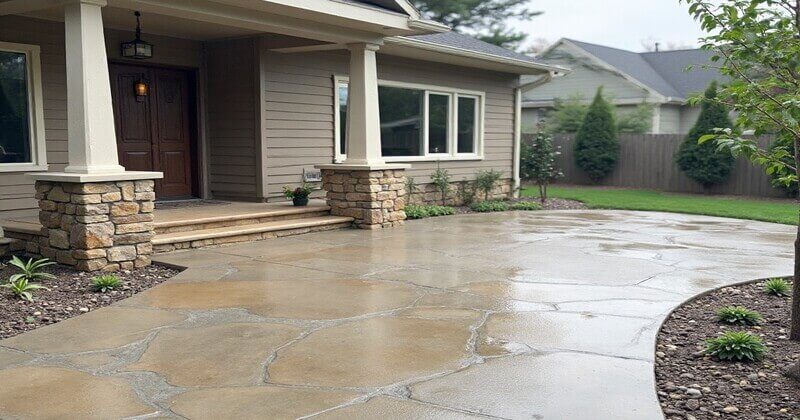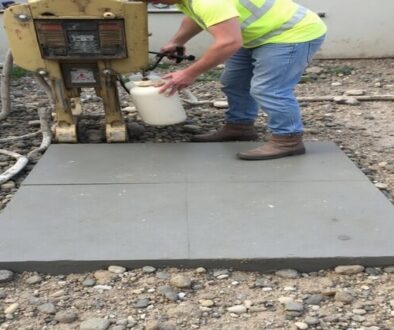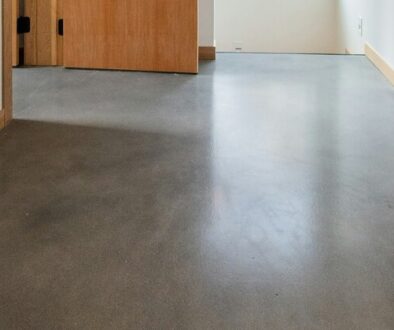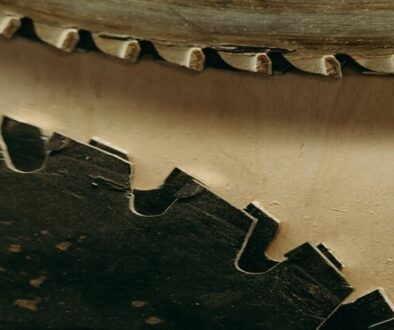Silicate Concrete Sealers: The Key to Long-Lasting Concrete Surfaces

Last updated on July 20th, 2025
Concrete is everywhere—driveways, basements, garages, warehouses, sidewalks. It’s tough but not invincible. Over time, weather, traffic, dust, and moisture take a toll on concrete surfaces. That’s where concrete sealers come in, protecting and extending the life of these hardworking slabs.
Lately, silicate concrete sealers have stepped into the spotlight. More homeowners, builders, and business owners now trust silicate sealers for stronger, cleaner, and more durable concrete. This article breaks down what makes silicate concrete sealers different, how they work, and when and where you should use them.
What Are Silicate Concrete Sealers?

Silicate concrete sealers are a unique group of penetrating sealers. They react with the concrete below the surface, rather than forming a film on top. This sets them apart from acrylic, epoxy, or urethane sealers, which usually sit on the surface and can peel or wear off over time.
Primary Chemical Makeup Silicate sealers are water-based solutions made from metal silicates—commonly sodium, lithium, or potassium. Once applied, their molecules find open pores inside the concrete and start a chemical reaction known as densification.
How Silicate Sealers Differ from Other Types Other sealers often block moisture and spills with a protective layer on the surface. Silicate concrete sealers, by contrast, get deep into the concrete. Instead of just blocking, they make the inside of concrete denser and less porous by bonding with the free lime, creating more calcium silicate hydrate (CSH)—the same compound that gives concrete its strength.
Types of Silicate Concrete Sealers
Sodium Silicate
- Often the most affordable option.
- Tends to react more slowly.
- Works best on older or more porous concrete where the sealer can penetrate fully.
Lithium Silicate
- More expensive but highly stable.
- Penetrates more deeply and evenly.
- Less likely to cause surface whitening or residue.
- Preferred for high-traffic or architectural concrete.
Potassium Silicate
- Less common but effective.
- Similar benefits to sodium silicate but with better water resistance.
Key Differences:
- Penetration depth, reaction rate, and risk of residue all vary based on the silicate.
- Lithium formulas are best for newer, denser concrete or high-performance flooring.
How Silicate Concrete Sealers Work: The Science Behind Densification

Silicate sealers don’t just sit on concrete. They soak in and react with calcium hydroxide (free lime) inside the matrix. This reaction produces more calcium silicate hydrate, filling pores and microneedles throughout the slab. Imagine turning a sponge full of holes into a solid brick. That’s densification.
Result: The densified surface resists moisture, dust, and chemical intrusion far better than untreated concrete. It won’t make concrete waterproof, but it does protect against liquids, stains, and surface wear.
Key Benefits and Limitations of Silicate Concrete Sealers
Durability and Surface Protection
Why silicate sealers stand out:
- Long-lasting: No peel, fade, or yellowing like film-forming sealers.
- Abrasion resistance: Reduces surface wear from foot or vehicle traffic.
- Dust-proofing: Densifies weak surfaces that generate dust.
- Moisture control: Cuts water absorption, reducing freeze-thaw and salt damage.
- Improved longevity: Treated slabs keep their strength for decades.
These qualities explain why warehouses, factories, and busy driveways rely on silicate-treated surfaces.
Limitations and Considerations
No product is perfect, and silicate sealers come with a few conditions:
- Not a waterproofing solution: They reduce moisture but won’t stop water vapor.
- Appearance: They keep the natural, matte look of concrete and don’t add gloss. Stains or colorings added after may not take as expected.
- Surface compatibility: Won’t bond well with surfaces containing heavy sealant or oil contamination. Not recommended for concrete less than 28 days old in most cases.
- Product compatibility: Hard to paint or coat over after application unless you use compatible products.
Think about your project and goals before choosing a silicate sealer.
Best Applications and Practical Use of Silicate Sealers
Where and When to Use Silicate Sealers
Silicate sealers shine in situations where performance and longevity matter most.
Ideal uses:
- Basements and garages that need dust-proofing and easy cleanup.
- Warehouse floors with heavy machines or forklifts.
- Retail spaces or polished concrete floors seeking a strong, low-sheen finish.
- Sidewalks and driveways that suffer from de-icing salts or freeze-thaw cycles.
Best on:
- Full-cure, clean, bare concrete (28+ days old).
- Surfaces not requiring a glossy or colored finish.
Step-by-Step Application Process
- Surface Preparation
- Clean thoroughly. Remove oils, dirt, paint, or old sealers.
- Address stains or contamination before starting.
- Test Absorption
- Sprinkle water on the surface. It should absorb within a minute. If not, the surface may be too dense or already sealed.
- Apply Sealer
- Use a low-pressure sprayer, roller, or brush.
- Work in small sections and avoid puddling.
- Apply evenly and thoroughly for full penetration.
- Allow to React
- Let the sealer soak in for 10-20 minutes.
- Wipe away any excess to prevent residue.
- Some products recommend a second coat; follow label instructions.
- Cure and Aftercare
- Allow the treated surface to dry fully, usually 24-48 hours before heavy use.
- Clean routinely with mild detergent and water. Skip harsh chemicals and acids.
Tips for the best results:
- Always read the manufacturer’s label for unique product quirks.
- Don’t rush the process—proper prep and drying time pay off.
- Test a small section first, especially on colored or old concrete.
Conclusion
Silicate concrete sealers have earned their place as a trusted tool for concrete protection. They work from the inside out, making floors tougher and longer-lasting while keeping their classic appearance. If you want less dust, stronger surfaces, and minimal upkeep for your concrete, a silicate sealer might be just what you need.
Consider the type of concrete, your goals for the surface, and the unique strengths of silicate sealers before committing. For industrial, commercial, or even heavy-duty residential spaces, silicate concrete sealers provide proven performance that pays off for years to come.
Interested in exploring more about concrete care or want a guide on picking the best silicate formula for your project? Browse our related posts about concrete sealer types, maintenance tips, and expert recommendations. Protect your concrete the smart way and it will reward you with years of service.




